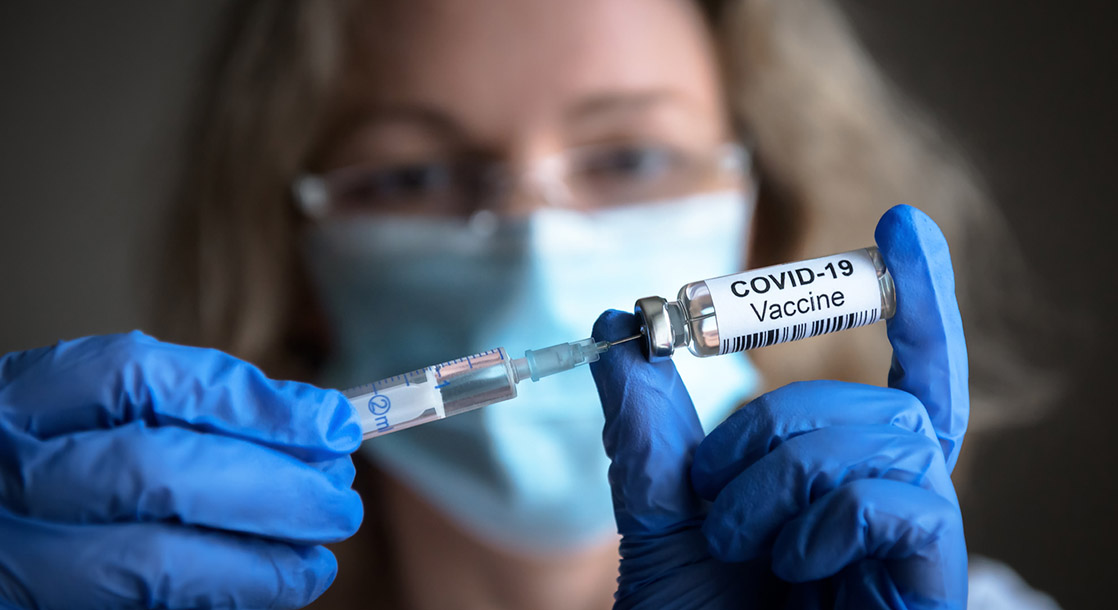Cover image via
Excessive use of cannabis or other drugs can increase the risk of contracting a breakthrough COVID-19 infection, a new study has found.
Although vaccines have greatly reduced the risk of developing or dying from COVID-19, a small percentage of vaccinated people still experience breakthrough infections, and an even smaller percentage of these infections have led to hospitalization or death. Researchers have already identified several risk factors, like age and obesity, that can increase the risk of infection for unvaccinated people, but a new wave of studies is investigating whether these same risk factors also apply to breakthrough infections among the vaccinated.
Previous studies have found that people struggling with substance abuse are more vulnerable to the virus and are also more likely to suffer severe outcomes if they do contract it. And according to a new study recently published in the World Psychiatry journal, substance abuse disorder (SUD) also increases the risk of contracting a breakthrough infection.
A team of researchers from the US National Institutes of Health and Case Western Reserve University in Cleveland analyzed medical data from 579,932 fully vaccinated people. Out of this group, researchers determined that 30,183 of these subjects met the diagnostic criteria for SUD. The vast majority of these subjects were diagnosed with tobacco (21,935) or alcohol (7,802) use disorder, but a smaller proportion also met the criteria for cannabis (2,055), opioid (2,379), or cocaine (1,011) abuse.
After comparing the rates of infections among these groups, researchers determined that SUD was indeed linked with a greater chance of developing a breakthrough infection. Over the course of the study, 7 percent of people diagnosed with substance abuse issues contracted COVID, compared to 3.6 percent of those without. The risk of infection varied slightly among people who used different drugs, ranging from 6.8 percent for tobacco smokers to 7.7 percent for cocaine abusers and 7.8 percent for pot abusers.
A further analysis of the data revealed that most of this increased risk of infection could actually be explained by socioeconomic factors and underlying health conditions. After adjusting for these factors, researchers found that most people with SUD no longer showed an increased risk of breakthrough infection – with one exception. Subjects diagnosed with cannabis use disorder were still 55 percent more likely to contract COVID-19, even after adjusting for the other variables.
The observational nature of the study prevented researchers from exploring this correlation further, but the authors hypothesized that excessive pot use could have a negative impact on lung health or immune system function. However, other studies suggest that cannabis’s immunosuppressant effects could also help treat COVID-19. Preliminary studies have indicated that THC could stop the immune system from going haywire during serious lung infections, and Israeli researchers are also developing a CBD-based treatment for severe COVID-19 infections.
Although the study raises some serious concerns about cannabis and COVID, it does not in any way prove that everyday cannabis use increases the risk of contracting a breakthrough infection. For one, the research only establishes a link between problematic cannabis use and COVID, and does not provide data on regular cannabis users. Researchers were also unable to collect data on other important risk factors, such as whether the subjects wore masks or practiced safe social distancing measures.
In a statement, NORML Deputy Director Paul Armentano said that the study “raises more questions than it answers. Those subjects with this clinical diagnosis represent a very small and distinct subset of the cannabis consuming community, and it is possible that they may possess certain behavioral traits or characteristics that place them at higher risk…. Therefore, we have no idea from these findings what elevated risks, if any, these non-classified consumers – who comprise the overwhelming majority of marijuana users – possess.”




![Snoop Dogg Plays Madden 20 with his Homies in the GGL VIII Championship [PART 4]](https://merryjane.com/wp-content/uploads/2024/04/1575591738285_ScreenShot2019-12-05at4.22.05PM.png)






